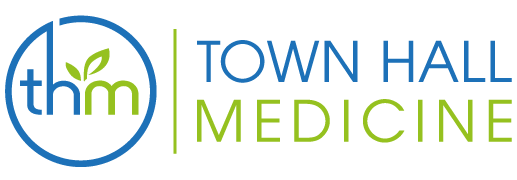THE MICROBIOME SUMMIT : The New Path to Health
Exploring Small Intestinal Bacterial Overgrowth (SIBO)
Dr. Talia Zenlea, PhD

Dr. Talia Zenlea, a gastroenterologist from Women’s College Hospital in Toronto, discusses the common symptom of bloating. Bloating can be related to a condition called small intestinal bacterial overgrowth (SIBO), characterized by too much bacteria growing in the wrong place. SIBO can be challenging to diagnose and treat.
In this interview, Dr. Zenlea guides us through an understanding of the value of testing for this condition and considerations for treatment – including some dietary modifications.
- Tracey:
- We’re here at the University of Toronto with Doctor Talia Zenlea, a gastroenterologist. Welcome.
- Talia:
- Thank you – thanks for having me!
- Tracey:
- When you say that organisms can go somewhere were maybe they shouldn’t be, like the small intestine, do you clinically see patients—like, do they feel symptoms?
- Talia:
- Yes and no. It’s very hard for me to diagnose whether anybody’s symptoms are due to organisms being where they shouldn’t be. But oftentimes, people come in with a lot of vague symptoms. So, let’s say, somebody comes in with bloating, which is something I see often, bloating can be from any number of things. The one thing that we’ve hypothesized, based on what we’ve seen in some people, is: could that bloating be from overgrowth of certain otherwise okay organisms in a place where they shouldn’t be? And that’s what we thought: could that be this entity called Small Intestinal Bacterial Overgrowth? There shouldn’t be this concentration of bacteria in the small bowel, in the asymptomatic host, so when somebody comes in saying they have this symptom of bloating, we’ve wondered, “Could this be because of small intestinal bacterial overgrowth?” Now, that’s not something I can look at you and say it is or it isn’t. One of the ways we know whether it is or isn’t, or we can guess, is by treating it, and seeing how people do. So, we can manipulate those organisms.
- Tracey:
- And how would you do that?
- Talia:
- SO, we can do that in any number of ways. One straightforward way is actually with antibiotics, which is a little counter-intuitive, because oftentimes, people get into this problem because of antibiotics. But remember, saying ‘antibiotic’ is like saying ‘medication’. Every antibiotic is different, and they all act on different strains of different organisms. So, it could have been that somebody took a specific antibiotic to treat either a pneumonia or strep throat, or whatever, like, a clear infection, and one of the Achilles’ heels of antibiotics is in addition to killing the organism that they’re intended to kill, it might also kill some good organisms that are playing a role, and that were otherwise just normal inhabitants of our body. So, there can be overgrowth of other organisms. So, what we can do is we can treat people with other antibiotics that would suppress those ones that are overgrowing and see if they feel better. And that’s something that we see often, that somebody might come in, having had that happen by accident. So they might say, “For whatever reason I developed this bloating, and then I was treated for strep throat and noticed that this symptom of bloating, that I had had for many, many years, got better.” And that’s what sometimes makes us wonder if that’s what caused their symptom in the first place.The other way we can try to do that is by modifying their diet. I don’t know that that’s specifically for small intestinal bacterial overgrowth, but it’s an example of how we can alter the bugs that are living, and wherever they are, if we’ve hypothesized that the bugs are playing a role in their symptom. And by modifying the diet, we can change the composition of their microbiota, and we often see downstream clinical consequences, meaning a patient’s symptom might get better.
- Tracey:
- Interesting.
- Talia:
- Yeah.
- Tracey:
- Can you elaborate more on what that diet might be? I mean, if I can change my diet and make my symptoms go away, I want to do that.
- Talia:
- Right! So it’s a lot less straightforward, at the moment, than we think. It’s very hard for me to say, “If you eat this food, it’s going to have this impact on the bugs that make up your GI tract, and that’s going to have this subsequent impact on your symptoms.” Might we be there in five or ten years? 100%! I believe that we will be, and I think that’s what’s so exciting about all this microbiome research. At the moment, we’re not there yet. What we do know is that, in healthy people, compared to people with disease, [14:00] they have a lot more bugs living in their GI tract. So, people with certain diseased states, what we’ve noticed is there’s a paucity of the organisms that make up their microbiota.That’s one thing we’ve noticed. So, then you might say, “Okay, how do I get more bugs in my GI tract, if healthy people seem to have more bugs?” What we’ve also noticed is that people who eat plant-based diets, lots of fibre, lots of fruit and veggies and less meat, tend to have these microbiomes that are more typical of healthy people. We’ve also tried to look at very specific things. So, they might say, “There’s this one organism that we’ve identified, and we know that this one organism plays a role in some genetic process that leads to a clinical condition, like the formation of plaques in blood vessels. So, if I feed people this trigger, can I then measure this other thing in their blood, that I hypothesize has a downstream effect on heart disease?” and you’d say, “Yes, okay, so we have shown that, so that’s maybe relevant” so then you can say, “Okay, what foods alter that?” And what they’ve found is, again, vegans—so, they happened to do this study comparing vegans, and healthy hosts tended to have a more favourable microbiotic environment that allowed them to have less of the bad stuff, and more of the good stuff. So, it’s led us to conclude that, in all likelihood, plant-based diets, diets high in fibre, high in fruits and veggies and lower in meat, tend to lead to a more favourable microbiome.
- Tracey:
- What would that look like on my plate?
- Talia:
- SO, what that would look like on your plate is, as opposed to a large, heaping steak and a little bit of green beans on the side, what we’d rather see is a lot less processed foods, a lot of natural foods. So, a big serving of vegetables, a big serving of fruit, and maybe a small serving of a non-meat protein. So, a fish or a plant-based protein.
- Tracey:
- How do we study these microbes in us? If you wanted to have a sense of, “What is living inside me?” what would you do?
- Talia:
- I wish we had a good test for that, but unfortunately we don’t. We’ve tried, particularly for small intestinal bacterial overgrowth. We can do a breath test, and people have come to me asking about that a lot. That’s a test where it’s basically a surrogate way of measuring the amount of organism in our small bowel. But we found the tests aren’t really reliable, meaning a lot of people who have a positive result, turns out they didn’t have Small Intestinal Bacterial Overgrowth, and a lot of people with a negative result did. So, the tests aren’t so reliable or helpful at the moment.
- Tracey:
- So, it’s better to sometimes go straight to treatment?
- Talia:
- For things like diet and functional diseases, it’s 100% better to go straight to treatment. We don’t have a good test. And oftentimes, you always have to wonder, “Why do we do tests?” For example, for somebody with Crohn’s, why do I care whether – why don’t I just say, “Let’s try an anti-inflammatory and if that doesn’t work, we’ll try a diet, or let’s try both.” And the reason being is because we have to look at the pros and cons of what we’re doing. And with a lot of the medications we use, there are downsides. They’re not perfect. They have side effects, they have negative consequences. So, I want to know what I’m treating, because otherwise I can’t justify the risks of my treatment, if there isn’t a clearly identifiable benefit. With the functional diseases, with a lot of these interventions, there are no risks associated with them. I’ve never shown anything bad happening from being on a FODMAP diet, or from taking dairy out of the diet and seeing how you do. So, it’s worth a shot. Unless there’s an identifiable risk or negative consequence, I don’t think there’s any harm in trying.
- Tracey:
- Right. Thank you.
- Talia:
- Thank you, thanks for having me.



